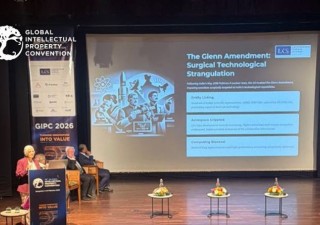Commercial Courts in India
15 October 2015

If the World Bank’s 2014 Ease of Doing Business Report, which ranks India 142nd among 189 countries surveyed, is any indication, there appears to be a growing impression among foreign investors and companies that India is a difficult place to do business. One major factor contributing to this is the lack of a time-sensitive and cost-effective dispute resolution mechanism to deal with commercial disputes, especially intellectual property disputes. As per the Law Commission of India Report No. 253, there are approximately 32,656 civil suits pending before five High Courts which have original jurisdiction in India, of which approximately 51.7% are commercial disputes. A significant number of these commercial disputes are intellectual property disputes.
An important realization that has slowly-but-surely started to seep into the consciousness of the Indian legislature and judiciary is the relevance of intellectual property as being the most important asset a company owns, and the urgent need for a proper, effective and efficient system to safeguard the same so as to foster a conducive commercial environment vital to the national interest. This is evident from the recent legislation, the Commercial Courts, Commercial Division and Commercial Appellate Division of High Courts Bill, 2015 (the Commercial Courts Bill), which has been introduced before the Parliament, wherein the legislature has provided for mechanisms to make dispute resolution in commercial matters more streamlined and time-sensitive.
The Commercial Courts Bill, 2015
Constitution and jurisdiction of commercial courts. The bill envisages the constitution of commercial divisions in High Courts (for the five High Courts which possess ordinary original civil jurisdiction) and commercial courts (in the states and union territories where the High Court does not possess ordinary original civil jurisdiction) which are to act as fast-track courts for resolving commercial disputes (the definition of which includes IP disputes) of a value not less than Rs10 million (approximately US$150,500).
Appointment, training and continuous education of judges. The judges nominated to such courts are required to possess expertise in commercial litigation. The bill also provides for regular training of such judges. This is a very important and welcome development as some IP disputes can be highly-technical in nature.
Provision of “case management hearings.” The bill provides for “case management hearings” aimed at ensuring a more proactive role of judges in dispute resolution, wherein the judges do not just supervise the progress of the suit but actively manage the same by fixing timelines and ensuring their strict compliance by the parties.
Strict adherence of timelines. The bill provides for strict timelines and provides for mechanisms to ensure that the timelines are complied with. For example, if a party does not file its written statement within 120 days from the service of summons, it forfeits its right to file the same and the court is prohibited from extending the period.
Improved infrastructural facilities. The bill envisages the commercial courts to have technologies like e-filing, digitization of documents, audio-visual recording facilities, etc. in place to ensure efficient disposal of cases.
Costs. The bill envisages introducing a new regime of costs, providing for “costs to follow event,” wherein as a general rule, the unsuccessful party pays the costs of the successful party.
Appellate bodies. The bill provides for the constitution of a commercial appellate division in each High Court to hear appeals from the commercial courts. Appeals and/or writs arising from the decisions of certain tribunals including the Intellectual Property Appellate Board (IPAB) are also to be heard by such appellate courts.
Steps Undertaken by the Judiciary
The last decade or so has witnessed a sea-change in the approach of Indian Courts to IP litigation, with the judiciary becoming increasingly aware of the inevitable link between efficient enforcement of IP rights and an improved environment for commerce and trade in the country. The judiciary has taken a number of proactive steps to ensure effective and expeditious disposal of IP cases. One very significant order in this regard is the order recently passed by the Supreme Court of India in patent infringement case Glenmark Pharmaceuticals Ltd. v. Merck Sharp & Dohme Corp. & Anr, wherein the court passed the following revolutionary directions:
• Recordal of evidence to take place on a day to day basis;
• Cross-examination of witnesses of both parties to be completed by a certain date;
• Strict instructions to parties and the local commissioner to make themselves available for the recordal of evidence; and
• In case of non-availability of venue at the Delhi High Court, specific directions given to the local commissioner to arrange for a special venue for the proceedings.
The Commercial Courts Bill and steps taken by the Indian Judiciary highlight the advent of a much needed “time revolution” in IP litigation in India. These measures can only bode well for the future of IP enforcement and consequently a more conducive commercial environment in India.
First Channel Building
Plot No. 17 A, Sector 16 A
Film City, Noida 201301 (UP)
India
T: +91 120 4059300
F: +91 120 4243056 - 058
E: email@anandandanand.com






